|
Gerry Krzic K-41 One of the unexpected pleasures (and there are many!) of having served as a Peace Corps Volunteer in Korea is the serendipitous meetings one has now with Koreans who have a memory of or connection with the many volunteers who served in Korea. This month's blog will profile three of these individuals who are working to preserve Korea history and traditions with the goal of contributing to a better future. 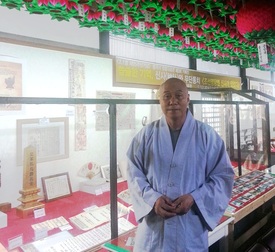 Profile One: The Venerable 종걸스님 of Dongkuk Sa (Dongkuk Temple) 동국사(東國寺) in Kunsan City Modern-day Korea has dismantled many of the buildings from the Japanese colonial period. One exception is the city of Kunsan in Jeollabuk province which has been preserving many of them from this difficult period in Korea history. A stroll through the city can transport you back in time as you see old structures such as the customs office at the port, the Joseon bank, and the trade office. Perhaps the most interesting structure is located down a narrow street on the west side of the city: Dong Kuk Temple 동국사 (東國寺). Stepping through the front gate, visitors see a building with the simple colors of a Japanese temple that one would find in Kyoto, Japan. However, as interesting as the outside of the temple is, it is the inside -- where it doubles as a temple and museum -- that is most fascinating In fact, it may be the most interesting museum you have never heard of in Korea. Luckily, on the day I visited I was able to meet the head monk and curator of the temple/museum: The Venerable 종걸스님. According to 종걸스님, during the Japanese occupation, there were more than 1,000 Japanese Buddhist temples in Korea. But, Dong Kuk Sa is the only temple to survive so they have decided to display artifacts from that time period. Their goal is to show the next generation of young people about the history of Korea so that they can see the harshness of militarism and make sure it is does not happen again. The temple possesses about 5,000 items but are able to display only a small portion due to the lack of space and staff. 종걸스님 takes the lead on selecting the items, planning and designing the display. He acquired many of these artifacts, particularly the hard-to-find items, through the assistance of a monk in Japan, who is very regretful of Japan's actions during that time period. In my conversations with 종걸스님, he told me that he had a Peace Volunteer as an English teacher when he attended a private Christian mission high school in Kocheong, Gyeongsangnam province from 1971 to 1973. Unfortunately, 종걸스님 cannot remember the volunteer's name but he does remember her very dedicated way of teaching and her willingness to adapt to Korean culture. According to 종걸스님: "We didn’t have any textbooks for the conversation class and so she typed and copied materials for us. Usually in Korea at that time, you would be given a paper test about what you had learned in classes. But our Peace Corps teacher would call us out into the hallway one-by-one and test us not by paper but by interviewing us. It was very unusual for that time. I couldn’t answer the questions very well, but I remember the teacher gave me a score of 80%. Anyone visiting the Kunsan area should try to visit the temple to see the exhibit and chat with the Venerable 종걸스님, a man dedicated to preserving the past for a brighter future. And if you know who was teaching English in Kocheong in 1971 or so, contact us at FOK! 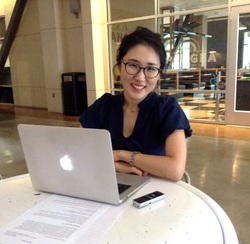 Profile Two: Ms. Chee Hye Lee (이지혜), The University of Arizona Recently, FOK members may have seen postings on the FOK and Korea RPCVs Facebook sites about a survey on the history of English education in Korea being conducted by Ms. Chee Hye Lee (이지혜). I had the pleasure of meeting Ms. Lee during a visit to the University of Arizona, where she is a doctoral student in the department of Teaching, Learning, and Sociocultural Studies. Ms. Lee is in the process of writing her dissertation on the teaching of English in the Korean schools since the founding of the Republic in 1945. She is dividing her research into three different historical periods: the nation-building period from 1945 - 1960, the "Peace Corps-Korea" period from 1966-1981, and the globalization period from 1993 – present. She is examining the English educational policies and practices during each time. Her interest in researching the history of English teaching in Korea evolved from a discussion about English education policies with her father, Professor Ki Suk Lee, who is at Jeju National University (JNU). Professor Lee shared a story with his daughter about learning English from a Peace Corps Volunteer when he was a middle school student in 1967 in Daejeon. According to Ms. Lee, this was the first time that she had learned about Peace Corps in Korea. Since she did not know about this part of Korean history, she thought that most likely other members of her generation do not know either. Thus, she hopes to capture that piece of history "before it is too late." Her link to Peace Corps Korea is based on a chance encounter her father had one day while working at JNU. Ms. Lee explains : "I am not sure about the exact year, but he (father) was the head of the Foreign Language Institute (FLI), at JNU. During that year, I think the Peace Corps revisit program was going on. One of the PCVs (her name is Judy Van Hoorn) visited Jeju, to see a friend, Young Sook Han. So, Mrs. Han was introducing JNU to Judy. While they were looking around the FLI building, they coincidentally met my father. While they were introducing each other, having heard that Judy was a PCV, my father shared his story of learning English from a PCV when he was a middle school student. Judy and my father found out that they were in the same city, Daejeon, during the same year. My father told Judy that his PCV teacher was Derek Van Hoorn. Judy was very surprised because my father’s former PCV teacher was her husband. It was a complete coincidence! I think the world is getting smaller and smaller!" Then, in 2013, during a conference in San Francisco, Ms. Lee stayed with the Van Hoorn family. She was able to see pictures from the couple's time in Korea teaching English. Ms. Lee said it was an amazing experience to meet them and to see their photos of Korea from the late 1960s. After the San Francisco conference, Ms. Lee returned to the University to consider her dissertation topic. She thought that all of "this (my father meeting Judy, after all these years, and being able to meet Judy and Derek, and reconnecting) was a serendipitous experience" and a sign that she has to conduct this research for her dissertation. Ms. Lee's prediction for the future of English education takes into account the changing political and economic landscape of East Asia. She feels that the Chinese language will continue to grow in popularity. Whenever she goes back to Jeju, she sees an increasing number of Chinese visiting the island and hears Chinese being spoken in all the tourist areas. She does believe that English will continue to be important as it is still the global language for trade and commerce. After finishing her dissertation, she hopes to find a university position and continue her contribution to global English education but now with a stronger understanding of what has occurred in the past. If you would like to contact Ms. Lee about her research, contact us at FOK. 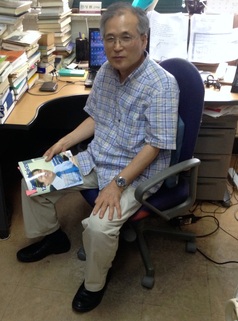 Profile Three: Dr. Sang Bum Chin (진 상범), Professor of German Language and Literature, Cheonbuk National University. In the city of Jeonju, German Language & Literature professor, Dr. Sang Bum Chin, has been diligently working as a teacher and scholar with national recognition for his work: the 2013 Ministry of Culture, Sports and Tourism Award for Outstanding Scholarly Book and a listing in the "Who's Who in Korean Society" for 2014. In 2009, he established the Institute of Intercultural Communication at CBNU to globalize Korean culture and research strategies for world peace and Korean unification. I met Dr. Chin unexpectedly in the foreign languages building at Cheonbuk National University (CBNU), where I learned of Professor Chin's next big project: the creation of an international cyber university to be located near the Imshil PIlbong Nongak Center in North Jeolla province. Former volunteers in the Jeollado area may remember Imshil as the only place to find cheese in Korea during the 1960s and 1970s. However, its nongak (farmer's music & dance) has been designated by the Korean government as an important Intangible Cultural Property that should be preserved for future generation and is one of only five such nongak centers in Korea. Professor Chin is purposely choosing the Pilbong area as the location for his cyber university because he feels that the interactive performance of traditional nongak transcends language differences and has the power to unite people in a harmonious environment -- the first step in learning cooperation and peace. See this video of Pilbong music and read about a former Fulbright English Teaching Assistant's experience at the Center. Professor Chin envisions the cyber university to have four departments for leadership development on world issues. The first is a Department of Korean Studies for educating leaders to create globalization strategies of Korean culture. The second is the Department of Unification to create leaders to seek unification between the two Koreas. The third is the Department of World Peace for leaders to realize world peace. The fourth is the Department for Co-Existence, which will research methodologies for solving global problems such as environmental pollution, war and poverty. Professor Chin feels that the goals of his latest initiatives match the goals of Peace Corps and the Friends of Korea and is now planning for an international symposium on world peace and unification in 2015. He is trying to use the traditions of Korean music as a catalyst for solving world problems via modern technology. Stay tuned for developments on the cyber university. Finally...
Leave us a comment -- maybe about a serendipitous experience you have had in Korea yourself!
1 Comment
Manuel Franco
6/24/2023 08:57:52 pm
I just want to say Thank You to everyone who supported me through the years. My name is Manuel Franco, New Berlin, Wisconsin. My story of how I won the Powerball lottery of $768.4M is a bit of a tale. I have been playing Powerball tickets for 6 years now since I turned 18. I bought my first ticket on my 18 birthday. I was feeling very lucky that day because I had contacted Dr. Odunga Michael to help me with the winning Powerball numbers. I really had that great great feeling that I looked at the camera wanting to wink at it. I only did a tiny part of it and trusted him. He gave me the numbers after I played a couple other tickets along with it for $10. I checked my ticket after the winnings came online and saw the numbers were correct including the Power play. I screamed for about 10 minutes because it felt like a dream. I had won $768.4M. You can check my winning testimony with the lottery officials just with my name search. Thank you Dr Odunga. Well, his email is [email protected] and you can also call or Whats-app him at +2348167159012 so you guys can contact him
Reply
Leave a Reply. |
Details
Friends of Korea
This is a BLOG for and about Friends of Korea. Archives
May 2019
Categories |
2021 L Street, NW
|
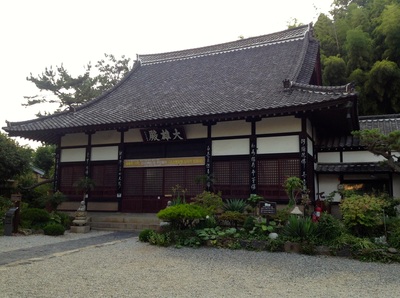
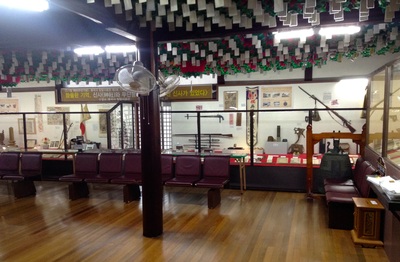
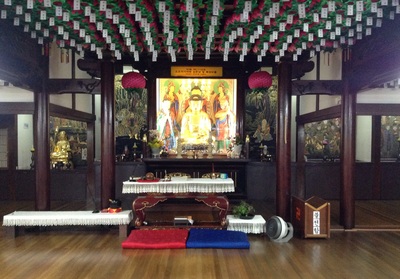
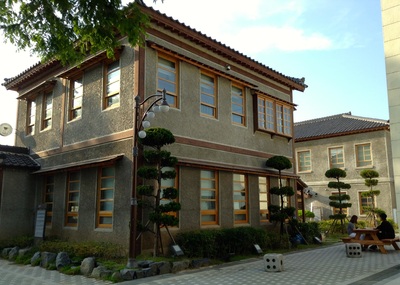
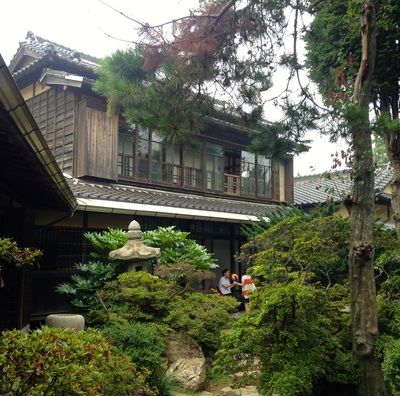
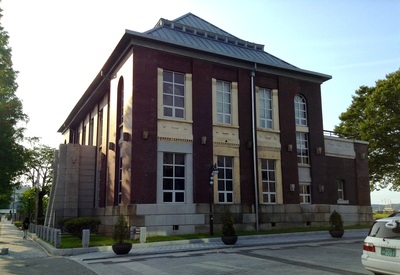
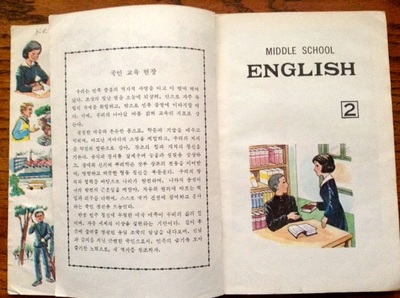
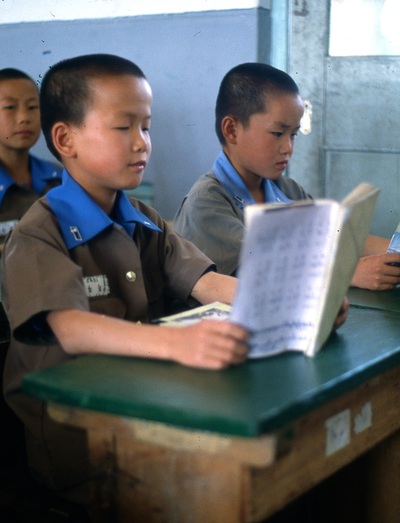
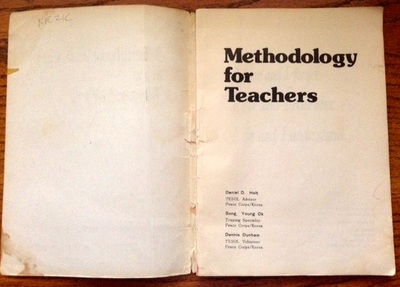
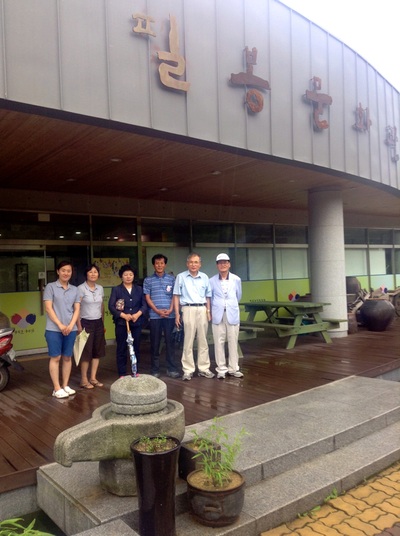
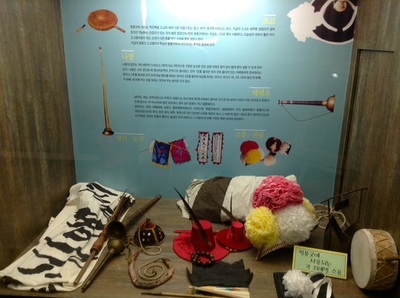
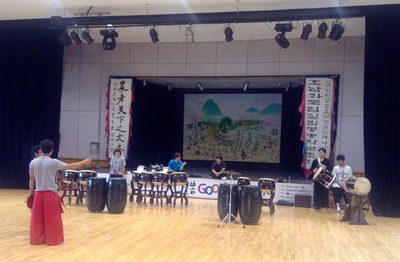

 RSS Feed
RSS Feed

